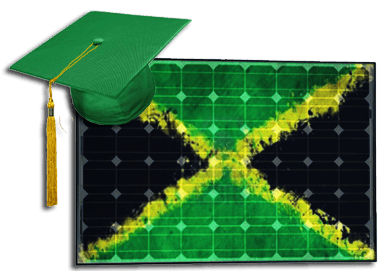Renewable PV Energy Education Jamaica. In many solar hotspots around the world, policy is one of the primary drivers behind widespread renewable energy adoption. In Germany, Ontario, Florida, and Japan, for example, politicians have successfully enacted a range of solar incentives to boost photovoltaic installations.
But in Jamaica, this type of government involvement may not be necessary. The island nation’s solar boom appears to be driven by factors as natural as… well… as natural as sunshine.
What Is Driving Jamaica’s Solar Growth?
Over the past year, solar cell costs have fallen by nearly 50%. However, falling PV prices alone probably wouldn’t be sufficient to drive renewable energy deployment across Jamaica. Another phenomenon is helping to fuel growing interest in solar technology – the rising cost of oil.
Currently at $102 a barrel, crude oil prices are largely responsible for the country’s trade deficit. Jamaica actually spends more on imported fuel than it makes from all of its exports combined.
Taken together, cheaper panels and pricier oil have radically transformed payback periods for solar PV installations in Jamaica. Prior to this convergence, one might have to wait 20 years before breaking even. Now, some advocates believe that solar installations can pay for themselves in just 6 or 7 years.
Once you understand these numbers, the rest kind of falls into place. When payback periods becomes three times shorter, it’s reasonable to expect a corresponding increase in green investment, PV imports, and solar energy courses throughout Jamaica.
And that’s exactly what has started happening.
Solar Energy Courses Coming to Jamaica
US Solar Institute (USSI) in nearby Florida has always received a trickle of students from the Caribbean. But in recent months, that trickle has become a stream – one heavy enough to warrant opening a new branch office in Kingston to offer solar energy courses in Jamaica.
“We’ve trained many Jamaican students already, but the country needs a lot more installers if it wants to move off fossil fuel,” says lead instructor and USSI President, Ray Johnson. “By providing solar energy courses in Jamaica, we’ll build the necessary green workforce much faster than we can from Florida.”
USSI plans on launching its new solar installation training campus within the coming months – in time to help build a 24MW solar farm scheduled for Paradise Park, Jamaica later in 2012.
“We’re already in discussions with the original equipment manufacturer to provide the labor and PV installation training for this solar farm,” says Johnson. “With so many of our graduates already in Jamaica, the timing couldn’t be better.”
Students interested in solar energy courses today (before the Jamaican move) should contact USSI directly.

